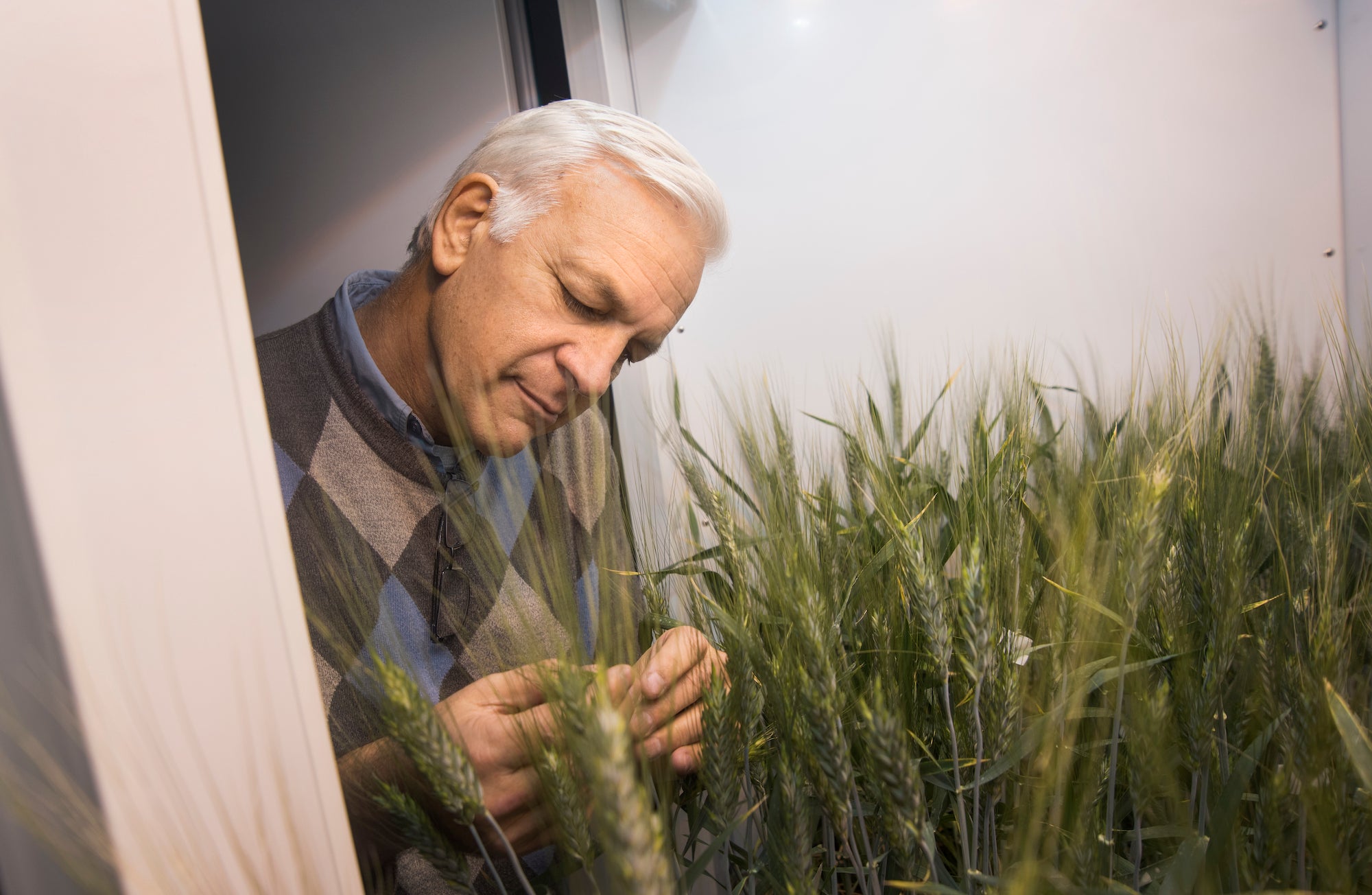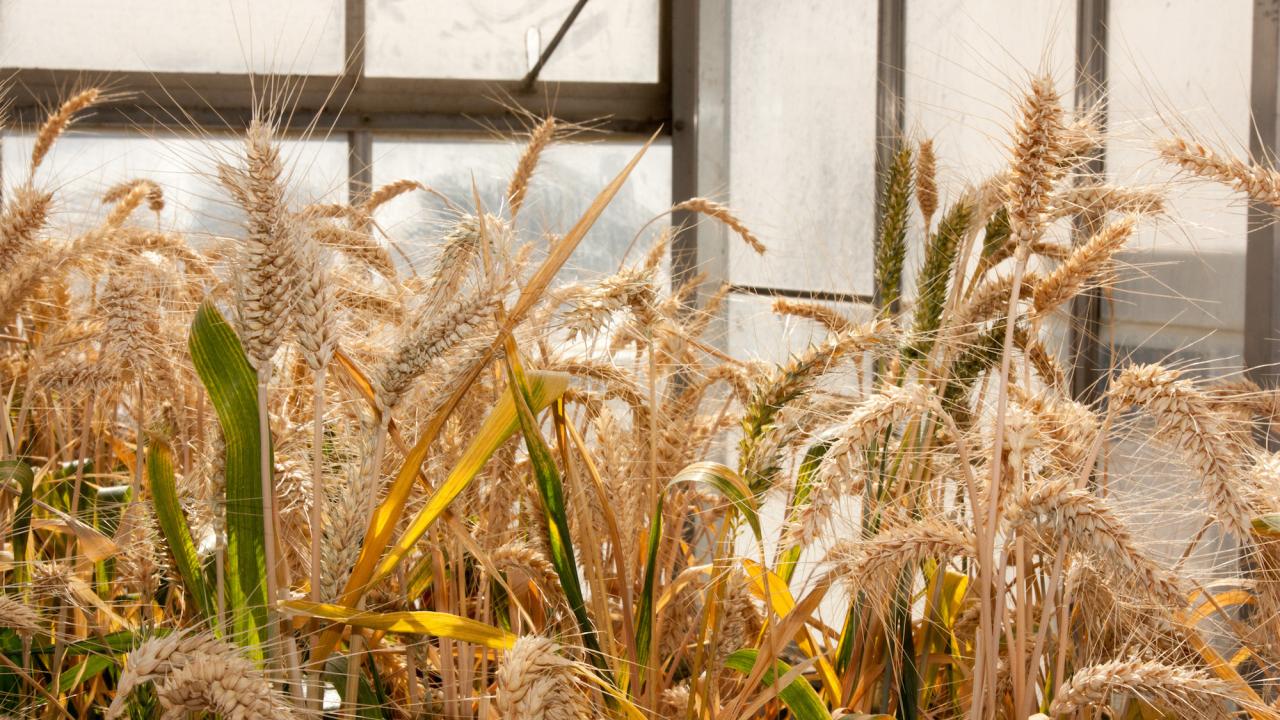Quick Summary
- Research project will accelerate wheat breeding
- 41 researchers and breeders involved, in 20 states
- Project will train next generation of wheat breeders
Wheat products account for roughly 20% of what people eat every day around the globe. As climate changes, wheat crops must adapt to new weather patterns to keep up with demand.
RELATED
- From the Egghead blog: Jorge Dubcovsky-Led Team Identifies Wheat Gene That Increases Yield
The University of California, Davis, is leading a five-year, $15 million research project to accelerate wheat breeding to meet those new climate realities, as well as to train a new generation of plant breeders.
“Everything is less stable,” said Jorge Dubcovsky, a plant sciences distinguished professor who is leading the grant research. “Everything is changing so you need to be fast. You need to be able to adapt fast.”
The grant from the U.S. Department of Agriculture’s National Institute of Food and Agriculture will create a coordinated consortium of 41 wheat breeders and researchers from 22 institutions in 20 states. Researchers from Mexico and the United Kingdom are also participating.
Breeding needs to speed up
“Breeding crops for the future will require new traits, breeding platforms built for quick transfer of traits to elite cultivars, coordination of breeding efforts in public and private domains, and training for current and future plant breeders and researchers,” NIFA said in an announcement about this grant and others related to breeding.
The program involves on-the-ground research, identifying molecular markers and data analysis from multiple institutions to determine genes that will help wheat crops mitigate the effects of climate change. Plant breeding will follow to prove out those findings.

Wheat is unlike other crops in that 60% of the plant varieties — generating about $4 billion in annual production — are developed by public breeding programs rather than private corporations. In many states, wheat growers tax themselves to support basic breeding efforts at public institutions like UC Davis.
Increased coordinated research
The NIFA grant money will lead to more coordinated, sophisticated research. “This grant allows us to do breeding at a level that a good, modern company would do,” Dubcovsky said. “This grant is essential to maintain modern and effective public breeding programs in the U.S.”
The consortium will bring together data and research from across institutions, allowing for more expansive analysis while reducing redundancies. “We can take advantage of the data from everybody,” he said. “By doing that we don’t need to duplicate efforts.”
A team in Texas will analyze plant images taken from drones at each institution to extract information about plant growth, water use, nitrogen levels and other data. “Using technology, we can see beyond our human capabilities,” Dubcovsky said. “You can extract a huge amount of information from every plant variety.”
The data from those images will allow researchers to document the plants throughout the life cycle and determine which plants fare better under certain conditions. Genotyping will help researchers obtain information about the plant genome. The combination of these two types of data could speed up breeding cycles, helping wheat crops adapt to a changing environment.
“If we can breed fast, we can adapt to change,” Dubcovsky said. “We are trying to make sustainable improvements in time.”
Training the next generation
The project will also train a cohort of 20 plant Ph.D. students in active breeding programs where they will participate in fieldwork, collect data from drones and DNA samples, and learn to integrate that information to accelerate wheat breeding. The students will participate in online and face-to-face workshops, as well as educational events and national scientific conferences.
The other participating U.S. institutions: Colorado State University, Cornell University, Kansas State University, Michigan State University, Montana State University, Oklahoma State University, Purdue University, South Dakota State University, Texas A&M University, University of Idaho, University of Illinois, University of Minnesota, University of Nebraska, University of Wisconsin, Utah State University, Virginia Tech, Washington State University, and U.S. Department of Agriculture Agricultural Research Service branches in North Dakota, Washington, Kansas and North Carolina.
Media Resources
Media Contacts:
- Jorge Dubcovsky, Department of Plant Sciences, jdubcovsky@ucdavis.edu
- Amy Quinton, UC Davis News and Media Relations, cell 530-601-8077, amquinton@ucdavis.edu
- Emily C. Dooley, College of Agricultural and Environmental Sciences, cell 530-650-6807, ecdooley@ucdavis.edu
